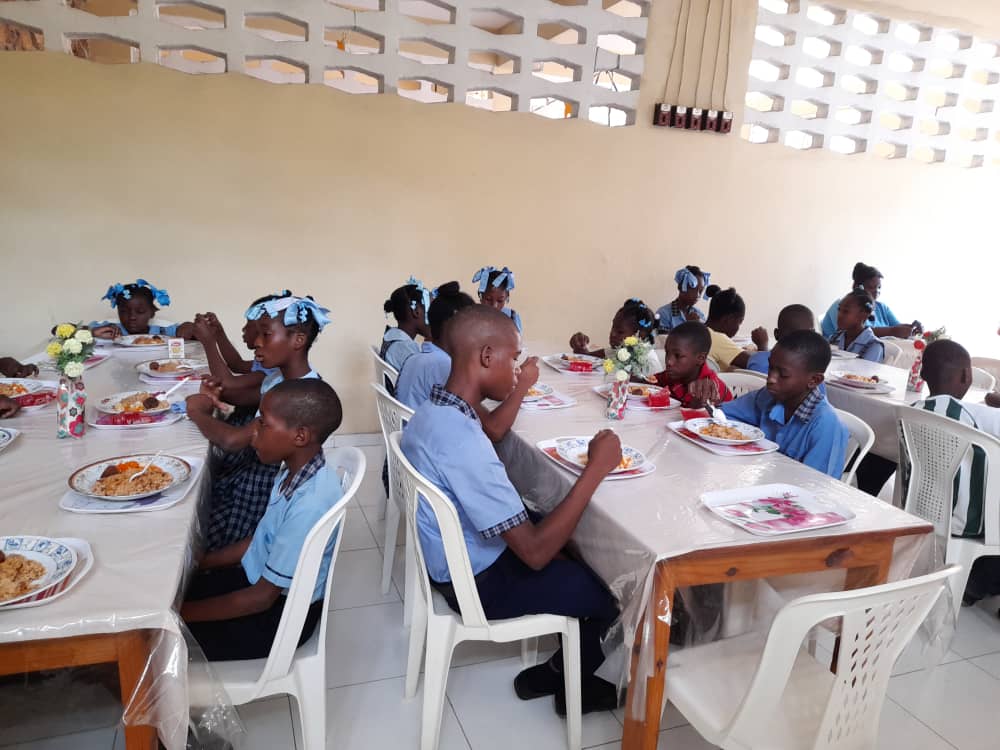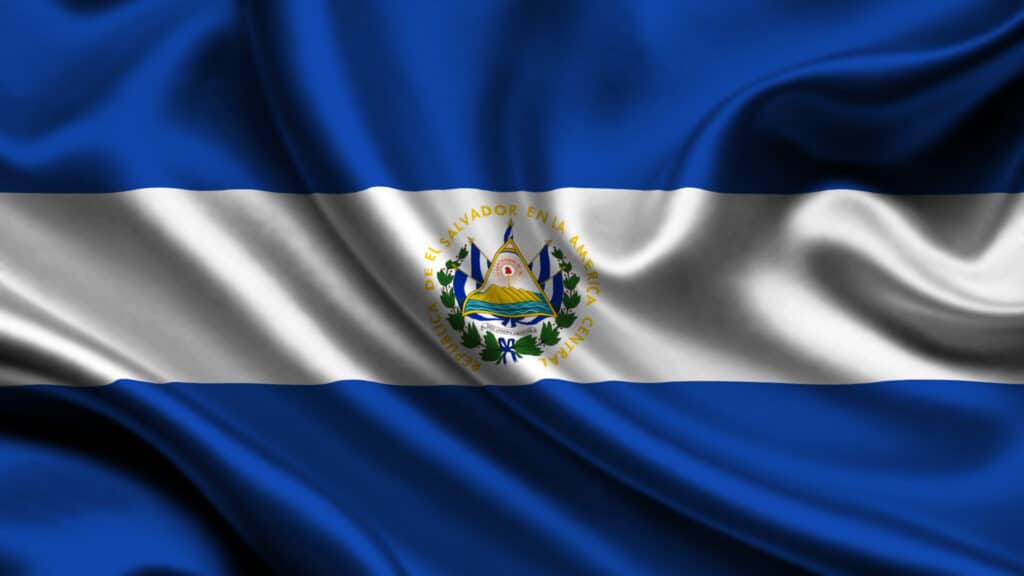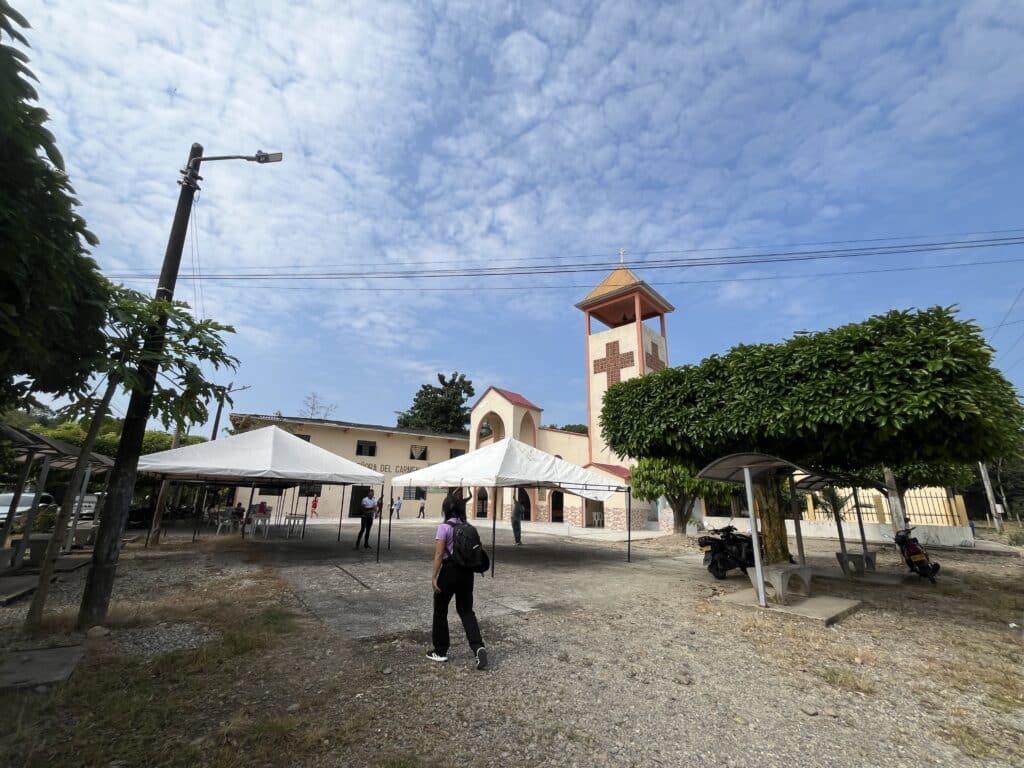Disciples Woman-to-Woman Worldwide Service Project – Haiti and Dominican Republic
Dominican Republic, Haiti
The island of Hispaniola is the home of the countries of Dominican Republic and Haiti. Both countries have shared the struggles of poverty, military dictatorships, and hurricanes. This island was one of the first conquered by the Europeans in the early 16th century. The indigenous population was practically wiped out and was replaced by African slaves. Now, opportunities are scarce and the two economies are supported by money sent back to the island by those living in Puerto Rico or the United States.
Global Ministries, the common mission witness of the Christian Church (Disciples of Christ) and the United Church of Christ, has partnered with churches and programs in both the Dominican Republic and Haiti for many decades. The Woman-to-Woman delegation in 2006, led by Global Ministries staff person, Reverend Elizabeth Carrasquillo, visited many of these partners. These churches and programs reach out to people in need, particularly children. Caminante in the Dominican Republic and House of Hope and CONASPEH, both in Haiti, are all supported in part by congregations and members of the Christian Church (Disciples of Christ). These three ministries are the service projects for the year-long Disciples women’s study of Haiti and the Dominican Republic.
Caminante
The capitol city of the Dominican Republic, Santo Domingo, has suffered a dramatic increase in population over the last decades. Families who previously farmed sugar cane moved to the city after the demand for sugar cane dropped in Latin America. Tourism began to become an important factor in the economy in the mid 1980s and, with dwindling opportunities, children turn to prostitution driven by tourism as a means of financial support.
The child sex industry in the Dominican Republic includes both boys and girls working mainly in tourist areas. Children involved in the sex industry are socially stigmatized and legally harassed. In the past the police regularly rounded up and arrested those involved in prostitution. These street children were often mistreated by authorities who considered them a nuisance.
Caminante, meaning “One Who Walks the Path,” is a grass roots organization made up of people who have first hand knowledge of the struggles that face the kids and teens in their community. Caminante is located in Boca Chica, a beach-resort town, located close to the airport and the capital city of Santo Domingo. The project provides a safe space where hundreds of youth and their families receive counseling and participate in recreational and formation programs. Additionally, victims of sexual abuse and exploitation are receiving special attention and services. Many Caminante staff members are former participants in the program who lived on the streets or had little support from a family.
To help children and their families have options other than prostitution, Caminante has vocational and technical education services such as classes and workshops, study rooms, partnerships with technical training centers, and assistance to help kids get back to school. Caminante helps develop self-esteem among the children by teaching Christian values through educational, social, and cultural activities such as singing, poetry, pantomimes, drama, and basketball. Health services offered include health and wholeness services, HIV/AIDS care, therapy and emotional support, and other medical services. Caminante also offers some legal assistance.
Caminante works closely with the families, churches, and the community to raise awareness regarding the complexity of this problem.
House of Hope
With a population of about ten million people, Haiti is an independent republic of the West Indies and one of the poorest nations in the world.
House of Hope in the Haitian capital city of Port-au-Prince is supported by the Ecumenical Committee for Peace and Justice (COPJ), an ecumenical non-profit. House of Hope is a program that benefits children laboring as domestic servants, assists young moms, single girls, and a few elderly women who have been abandoned. House of Hope provides a safe place where they can learn skills such as conflict resolution and a professional trade. House of Hope also has a broader program to promote peaceful resolution of conflict within the community through leadership development for community leaders.
House of Hope now has two locations in shanty communities of extreme poverty within Port-au-Prince. Children of these communities are subject to a modern form of slavery and live in constant danger and threat of rampant violence. The grave economic and social circumstances of these communities necessitate intervention to assist these children. While many economic resources have been provided by the international community to Haiti, most of these funds have not reached the shanty communities where many lie in hunger, misery, and inhuman conditions.
Life in Haiti is marked by either opulence or poverty, where those who have wealthy lifestyles are in the minority and control and utilize the poor. Impoverished girls go into prostitution or domestic slavery; impoverished boys beg and steal; youth give in to violence and hostage-taking to earn some living. House of Hope endeavors to make strides in the abolishment of forms of modern-day slavery as well as providing support and a means of escaping the dangers these children face daily. One method is to provide means for children and youth to attend school. Courses also are offered to help them learn peaceful conflict resolution in the hope of giving them some tools for improving their lives.
House of Hope relies on contributions from its partners in mission.
National Spiritual Council of Churches of Haiti (CONASPEH)
In a political and social system that is controlled by about five percent of the population while 95 percent of the population languishes in abject poverty, the church has no choice but to speak up.
The National Spiritual Council of Churches of Haiti (CONASPEH) is made up of 5,000 churches and serves as an umbrella organization for Haitian Protestant churches and associations. Established in 1986, it seeks to be not only an advocate for its member churches, but also a preacher of the gospel to all peoples everywhere, particularly those in the remote areas of Haiti, sharing Christ’s suffering as well as his compassion for those in need.
CONASPEH has projects in education and literacy. Even though by law education is free and compulsory for children between the ages of six and eleven, access to education is sharply limited by barriers such as school location, the cost of school clothes and uniforms, access to schools supplies, and the availability of teachers. Consequently, only 53 percent of the adult population is literate. To address these problems, CONASPEH has initiated educational programs to fill this gap by serving those in need. The Collège André caters to 20 kindergarteners, 150 elementary school students, and 247 secondary school students. Besides its basic curriculum, the school provides students with the opportunity to take courses in informatics, typing, plastic arts, and music and gives scholarships for the study of medicine and the other sciences at levels of higher education.
CONASPEH is providing the means by which people in Haiti can have access to, not only an education, but also the power and joy that comes from being able to read and understand the word of God.
Gifts to the Hispaniola Education Fund can be used to:
- $10.00 help provide needed school supplies at Caminante, CONASPEH, or House of Hope
- $25.00 help provide sports equipment at Caminante or sewing and embroidery supplies at House of Hope
- $50.00 help provide medical and psychological services at Caminante
- $100.00 help provide scholarships assistance through CONASPEH
Read a donor story supporting the Disciples Woman-to-Woman Worldwide Service Project.
Support this Ministry
To make a gift for this ministry online or by check use the online donation page.
- 100% of your gift will be directed to Disciples Woman-to-Woman Worldwide Service Project – Haiti and Dominican Republic
- You will receive updates on the work in this area as they become available
- Share in the vision of God’s abundant life for all people
Related Content
House of Hope in Haiti: ‘We Must Act’
Since the assassination of President Jovenel Moise in 2021, Haiti has seen a rise in gang activity...
Read MoreA message of solidarity with the Lutheran Synod of El Salvador after the passing of Bishop Medardo Gomez
Please join Global Ministries in prayer with the Lutheran Synod of El Salvador. Dear Bishop...
Read MoreThe Mass of the (Amazonian) World
Written by: Alex Maldonado-Lizardi and Xiomara Cintron-Garcia who serve with the Christian...
Read More


